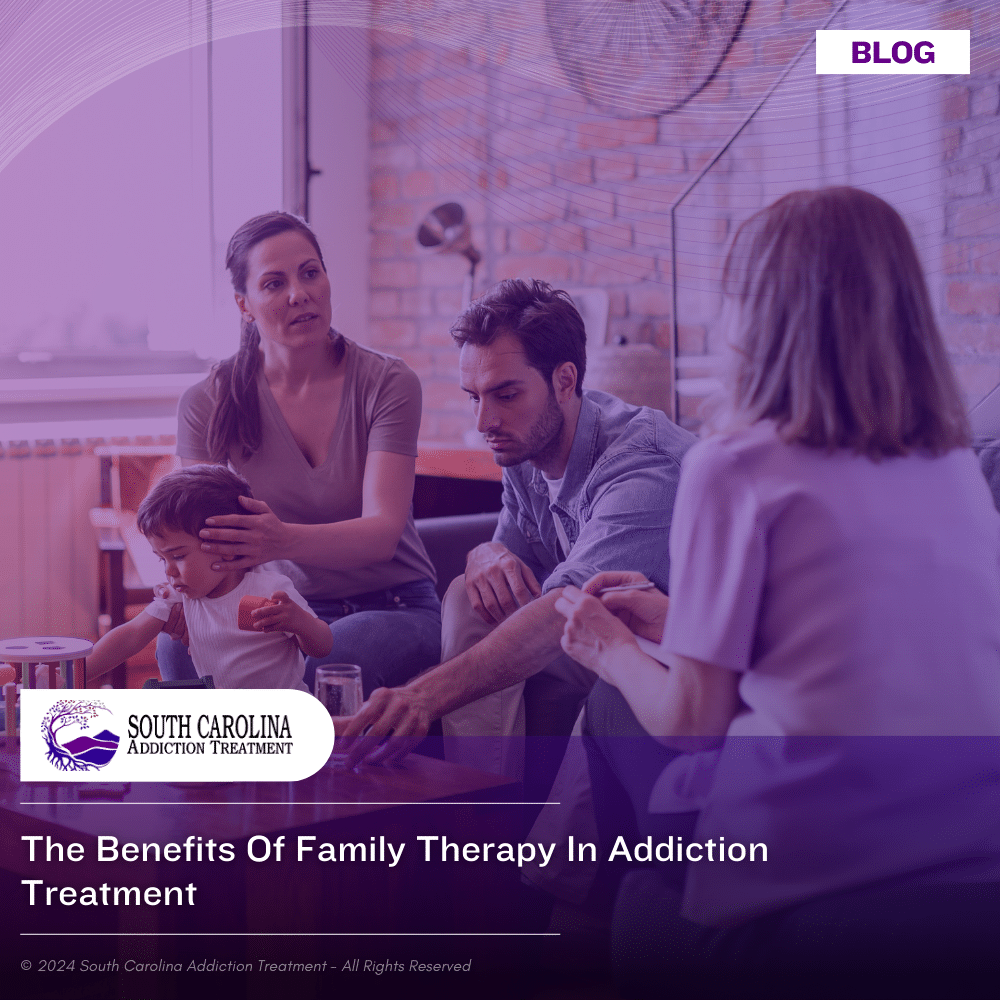The Benefits of Family Therapy in Addiction Treatment

Medically Verified: 2/1/24
Medical Reviewer
Chief Editor

All of the information on this page has been reviewed and verified by a certified addiction professional.
Addiction is a serious and complex condition that can affect every aspect of a person’s life. If you or a loved one lives with substance abuse or addiction, you likely understand the toll these conditions can take on your emotional, physical, and social health.
Addiction treatment should address the complexities of the condition. For the best chance at a full, lifelong recovery, it is not enough to simply go through detox. While detoxification is an essential first step toward recovery, you must also develop healthy coping skills and get the professional and social support you need.
Family support can be an important aspect of recovery from addiction. Addiction can sometimes have roots in the way family members relate to one another or in patterns and roles the members play. Learning to identify these roles and offering support to all family members can help families communicate more effectively and begin to work together to support the addicted person.
Using family therapy in addiction treatment plans provides an important opportunity for families to process their feelings about the addicted person and heal together as a unit. Learning more about using family therapy during treatment and recovery can help you make informed decisions about your own substance abuse treatment options.
Understanding Addiction as a Family Disease
When one person in a family is addicted, the whole family is affected. Addiction can cause people to act in unpredictable ways. Their family members may live with a great deal of anxiety, guilt, anger, or despair. Family members often experience high levels of stress as they navigate their relationships with the addicted person.
Left alone, this stress may cause family members to adopt roles that help them function in their daily life. These roles are often destructive to the emotional health of the individual and the family. Keeping this role can cause significant stress. Some of the common roles people take on include:
- Enabler: Usually a spouse or sibling. The Enabler works hard to cover up for the addicted person’s actions. They use a lot of their time and energy attempting to hide the fact that the addicted person has a problem.
- Hero: The Hero attempts to do everything “right” to prove that everything is fine. This often causes them a great deal of anxiety and stress.
- Mascot: The Mascot uses humor to deflect stress and relieve tension. This person is often very anxious underneath their humorous exterior.
- Scapegoat: This person takes the blame for things that go wrong and may eventually withdraw from the family. They are prone to stress and anxiety.
When one member of a family lives with addiction, the others find ways to function within the chaotic family framework–often at risk to their own mental health. Identifying these and other harmful patterns and beliefs is an essential part of family therapy in addiction treatment.
How to Use Family Therapy in Addiction Treatment
For most people, addiction treatment begins with medically-supervised detox. After completing detox, people may begin a treatment program that addresses the physical, emotional, and social aspects of addiction. Many treatment programs include family therapy in people’s plans.
Family therapy gives people in recovery a chance to address the complex roots of their addiction in a meaningful way. It also provides consistent, accurate education for the family members who participate. Moving through family therapy together gives people a chance to create and work towards a common goal and to address each person’s needs.
During therapy sessions, the counselor acts as a guide, educator, and mediator. The counselor can help family members process difficult emotions both together and individually. This process can promote healing in all members of the family and equip people to support their addicted loved one without enabling them.
Choosing Family Therapy in Recovery
There are many benefits to family therapy in addiction treatment and throughout recovery. These include:
- Improving communication skills
- Identifying and addressing dysfunctional patterns
- Creating healthy boundaries
- Creating and committing to a plan
- Learning about addiction as a family disease
- Effective processing of difficult emotions
Family therapy is beneficial only if all family members involved are willing to participate. People who are working through their own substance abuse issues or who are not ready to do the emotional work of therapy should not participate.
If family therapy is not an option during your time in an addiction treatment program, you may be able to participate in this type of addiction therapy later in your recovery process.
Learn More About the Benefits of Family Therapy in Recovery at South Carolina Addiction Treatment
If you or someone you love needs addiction treatment or another type of support during recovery, reach out to the caring specialists at South Carolina Addiction Treatment. We offer a range of programs and services that are designed to empower you as you put addiction behind you.
Don’t wait another day for the treatment you need. Reach out to us today.

